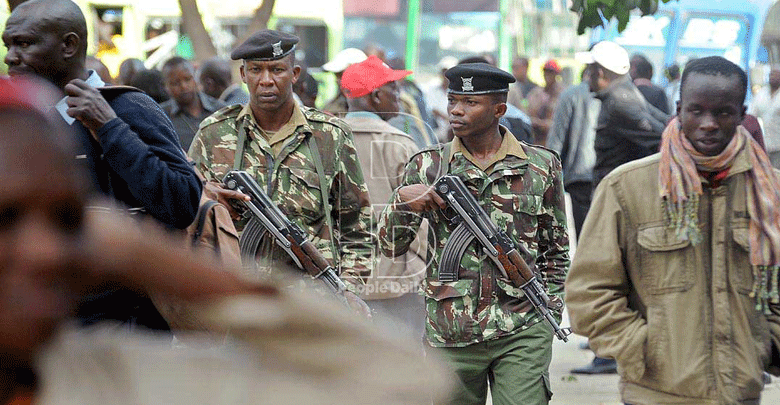Tame crime before it becomes national pandemic

An upsurge in crime is usually a symptom that an economy is becoming dysfunctional.
In such an environment, it is either difficult or practically impossible for a large swathe of young people to make honest or decent living from productive labour.
As a result, they resort to social crimes like kidnappings, muggings, petty theft and other misdemeanours.
Anecdotal evidence suggests that there has been an increase in such crimes, particularly in Nairobi, which has in recent weeks reported several cases of kidnappings daylight robberies and attacks on motorists stuck in traffic jams.
Only the other day, two men, one posing as a woman, were arrested in connection with muggings.
Earlier, the media reported two high profile incidents of kidnappings of business people and another case of an attack on a TV journalist.
Similarly, social media platforms are awash with videos of petty crimes like muggings, attacks on customers in restaurants and vehicle vandalism.
Such crimes are committed by people at the very bottom of the economic pyramid – people who have nothing to lose even if they are shot on sight.
The last time Nairobi had such a high number of such cases was 2008/2009, in the aftermath of the post-election violence which slowed down economic activity for close to two years.
The cases reduced when the economy recovered following a truce brokered by former UN Secretary-General Kofi Annan.
The economic conditions that created that scenario have now been replicated by effects of Covid-19 on economic activity.
This has led to a slowdown in job creation, under-employment and a shrinking of opportunities for micro businesses.
Whereas increasing policing is ideally a first line of treating this malaise, it will only address symptoms of underlying economic dysfunction.
It will also allay fears of an increasingly alarmed middle class, which is often the target of these crimes.
However, the real challenge is creating avenues for young people, first to get a shot at income generating opportunities, and secondly an avenue through which their vivacious energy and raw brawn can be safely defused.
This can be done through social events – like sports tournaments and music concerts – and other productive engagements such as being incorporated in activities that give back to society and promote social inclusion.
This can include engaging them to clean up neighbourhoods, plant trees and take part in collective engagements that make them feel appreciated and useful to society.
Such distractions give young people an opportunity to release their energies – both mental and physical – while also distracting them from negative influences like drug abuse, which is both a cause and effect of crime.
Unfortunately, such engagements have been reduced significantly by economic side-effects of Covid-19 restrictions on businesses, movement and gatherings.
Indeed, even acrobats have had to perform at road intersections for sustenance.
The upshot of this trend is that young men and women no longer have avenues through which their humanity and creativity can find expression even as they earn from such engagements.
When they lack decent opportunities, they are likely to become a menace to society. This is what is happening now.
That is why I have argued that increasing policing should only be treated as first aid as the government looks for an economic cure to the real malaise.
It is also important to note that according to the Ministry of Education, half a million children have just disappeared from the education radar.
These are people who have fallen off before achieving functional literacy, a necessary condition for gainful participation in economic activity.
It is, therefore, not surprising that there is an upsurge in crime as many disillusioned youths in this group enter an already battered economic arena with no skills that can guarantee them a decent livelihood.
As such, even when they scrounge and buy motorcycles, they are more likely to use them for criminal activity considering that the boda boda market is already saturated and the cost of living is rising, thanks to such tax measures as introduction of VAT on basic goods, including food and fuel. Diagnosing the ailment is easy. The real test is in finding a cure. — The writer is a Partner and Head of Content at House of Romford —Mbugua@houseofromford com













